Let the world not forget Nakba
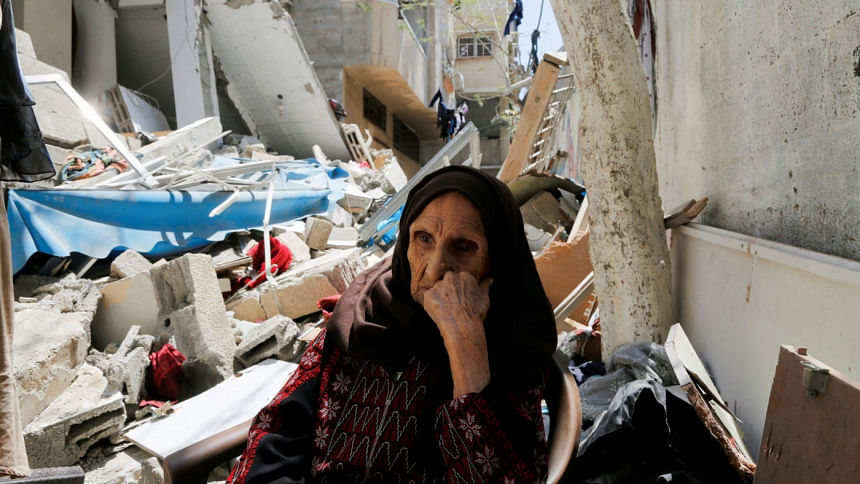
In Arabic, the word Nakba literally means "disaster", "catastrophe", or "cataclysm". This occurred when more than 700,000 Palestinian Arabs – about half of pre-war Palestine's Arab population – were expelled, or fled in fear of their lives, from their homes during the 1948 Palestine war. Urban Palestine was almost entirely extinguished. It can be safely assumed that around 80 percent of the Arab inhabitants of what became Israel, or half of the Palestinian-Arabs, had to leave their homes. The tragedy happened just before the Israeli Declaration of Independence in May 1948. Factors involved in the process included Israeli military advances, destruction of Arab villages, psychological warfare, and fears of another massacre by Zionist militias after the one in Deir Yassin (which had caused many to leave out of panic). Other factors included direct expulsion orders by Israeli authorities, "voluntary self-removal" of the wealthier classes, absence of an organised Palestinian leadership at that time, and an unwillingness to live under Jewish control. Any student of history will recall that when the unprovoked Deir Yassin massacre took place on April 9, 1948, around 120 fighters from the Zionist paramilitary groups Irgun and Lehi killed hundreds of Palestinian Arabs in Deir Yassin, a village of roughly 600 residents near Jerusalem.
The facts and figures surrounding the Nakba are staggering: around 700,000 Palestinians were forcibly displaced out of a population of 1.4 million, who used to live on their land; 531 Palestinian villages were completely destroyed after the forced displacement of the Palestinians by the Israeli occupation authorities, and those that remained were subjected to the control of Israel and its laws.
Zionist gangs committed 51 documented massacres against Palestinian civilians. Only about 1.5 million Palestinians remained in the Palestinian cities and villages on which "Israel" was established after the Nakba. At the end of 2022, their number reached about 1.6 million.
History would show the degree of betrayal by the key players involved with the Palestinian question. It was, in effect, a total violation of the United Nations General Assembly Resolution 181 of November 29, 1947, which stipulated the Palestine Partition Plan of creating two states: Arab and Jewish. The city of Jerusalem was to be governed under a separate international arrangement, or as a corpus separatum. Those involved with this process have chosen to ignore their own commitments, enabling Israel to continue with its inhuman and unlawful behaviour with impunity.
The long-term fallout from the 1948 catastrophe becomes even more stark when one looks at the refugee situation created by it. Today, Palestinian refugees are among the most numerous in the world and the oldest issue in the corridors of the United Nations.
According to statistics of UNRWA, as of September 30, 2022, the number of displaced Palestinians reached 6,617,869, equivalent to 46.1 percent of the total Palestinian population in the world. A third of registered refugees live in 59 official camps in Jordan, Lebanon, Syria, the West Bank, and the Gaza Strip. The remaining two-thirds live in cities and towns in host countries and in the state of Palestine under very difficult living conditions.
Bangladesh, itself a victim of massacre and genocide in 1971, has all along stood by the people of Palestine and has consistently supported their struggle for justice, leading to the establishment of the state of Palestine. This was reiterated in a message on the occasion of the 75th anniversary of the Nakba (May 15, to be exact) by Prime Minister Sheikh Hasina when she once again called for the peaceful settlement of the Palestinian crisis on the basis of international laws and UN resolutions, and for the achievement of an end to the Israeli occupation. She also sought the establishment of an independent, sovereign, and viable State of Palestine on the basis of the pre-1967 borders.
It is now up to those who call for a rules-based world order to accept the reality of the tragedy and ensure the establishment of a viable Palestinian state that can live in peace with all its neighbours.
Shamsher M Chowdhury, Bir Bikram, is a former foreign secretary of Bangladesh.


 For all latest news, follow The Daily Star's Google News channel.
For all latest news, follow The Daily Star's Google News channel. 
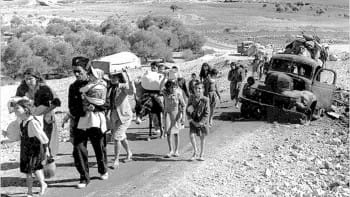


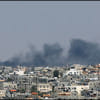
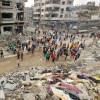
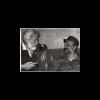




Comments